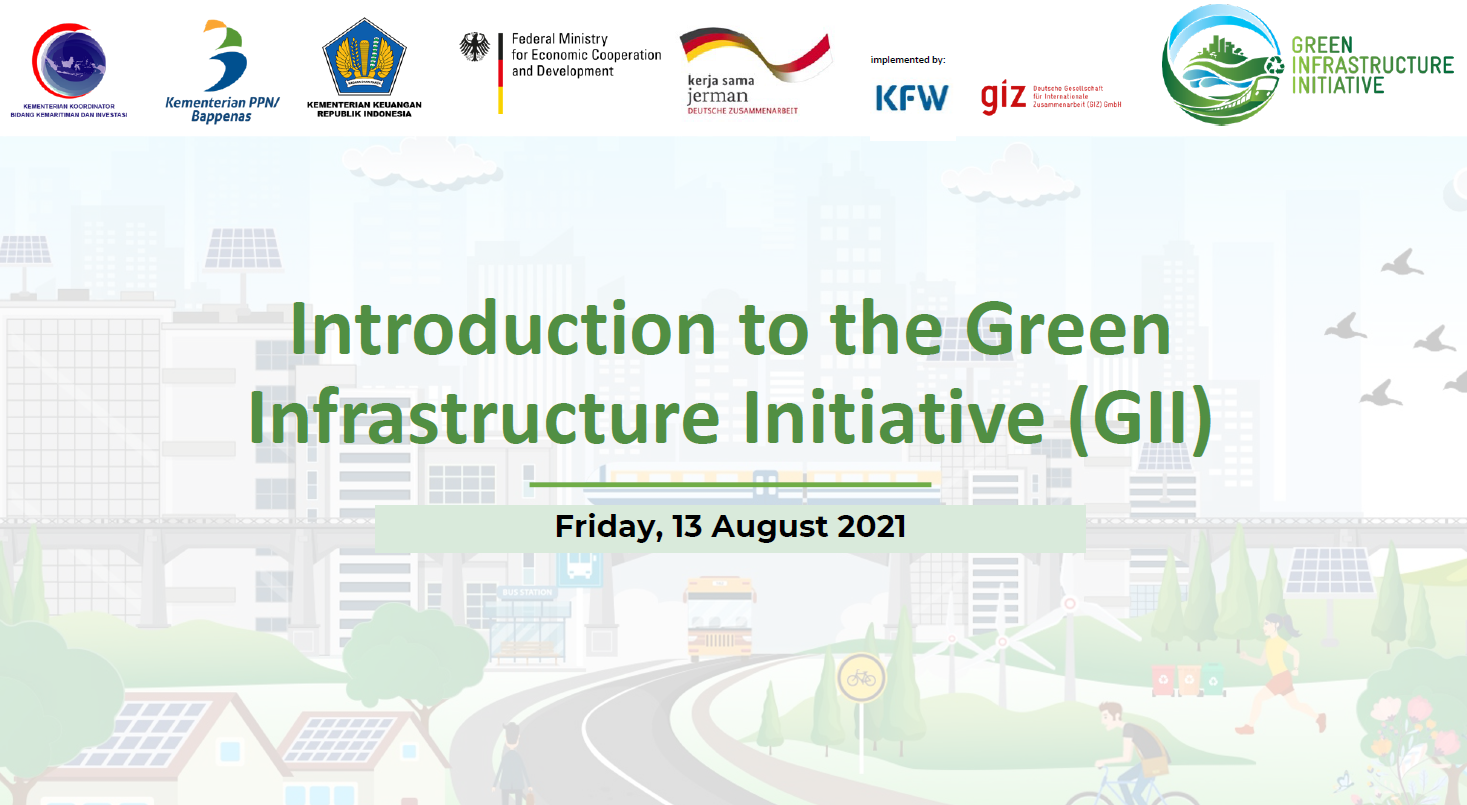Supporting Indonesia’s endeavour in sustainable reduction of carbon emissions is Indonesian-German Green Infrastructure Initiative (GII). GII is part of Indonesian-German climate initiative agreed in the framework of Indonesian-German bilateral government negotiations on 1 October 2019 in Berlin.
GII encompasses a five-year Financial Cooperation (FC) facility (low-interest loans, promotional loans) of up to EUR 2.5 billion to support environmental and/or climate-relevant infrastructure projects via subsidized and promotional loans through the German Development Bank (KfW).
GII‘s investments are promoting green infrastructure in Indonesia in three thematic sectors: Solid Waste Management, Water and Wastewater Management, and Urban Public Transport.
The Coordinating Ministry for Maritime Affairs and Investment (CMMAI) and the Committee for the Acceleration of Priority Infrastructure Delivery (KPPIP) were mandated to coordinate and accelerate the planning and implementation of priority infrastructure projects.
GII Objectives
The GII objectives are increasing capacities of responsible actors at national and sub-national level (provinces, districts, cities), enabling them to select and prioritize infrastructure projects for the Indonesian-German Green Infrastructure Initiative on the basis of specific criteria agreed with KfW (national level) and preparing them for financing in cooperation with the sub-national and local level.
Stakeholders involved in capacity development activities are Coordinating Ministry for Maritime Affairs and Investment (CMMAI) and the Committee for the Acceleration of Priority Infrastructure Delivery (KPPIP) as well as the Agencies for Regional Development (BAPPEDA) and other relevant local agencies in four selected provinces namely, West Java, Central Java, East Java, and Bali.
At the macro level, GII’s capacity building activities will strengthen the internal processes of these government institutions for: identifying, planning, and preparing infrastructure projects that have potential to be improved and coordinated more effectively.
Criteria Catalogues Guidelines
At the micro level, GII’s activities will advance the technical skills of stakeholders to develop and apply general, sector specific and gender-oriented criteria for the selection and preparation of green infrastructure projects. All selection criteria will incorporate the “Leave No One Behind” (LNOB) principle.
GII, working with relevant stakeholders, is targeting 6 from up to 18 project proposals to enter the pre-feasibility stage. This is done by jointly working with the local planning authorities in the provinces of West Java, Central Java, East Java and Bali to develop project proposals according to international standards.
The preliminary feasibility studies will prepare potential bankable environmental and/or climate-relevant infrastructure projects in Indonesia to be financed and implemented by KfW.
The studies will support partners at national, sub-national, and local levels to identify priority green infrastructure projects in a coordinated manner and prepare them for implementation.
 English
English Indonesia
Indonesia
